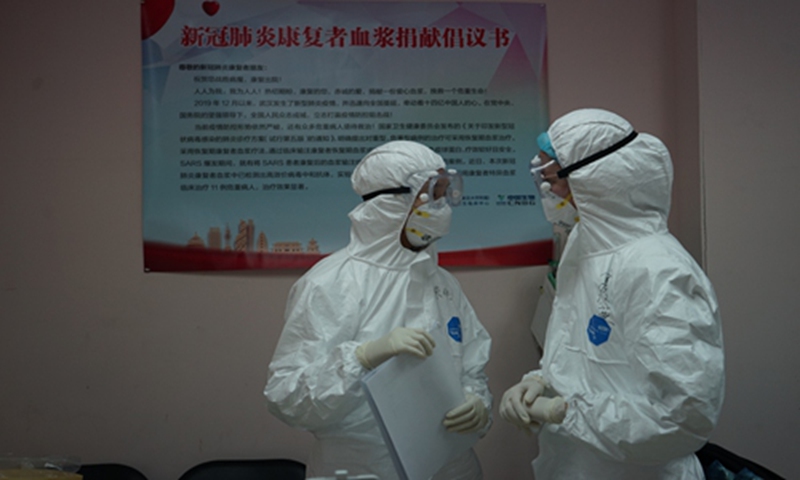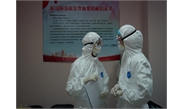China’s first COVID-19 department established to normalize future coronavirus’ treatment

Two medical staffers at a designated plasma collection center of the Shanghai Public Health Clinical Center Photo: Chen Xia/GT
Shanghai Public Health Clinical Center has set up China's first COVID-19 department with closed-loop management in a bid to normalize the management and treatment of infectious diseases and ensure the novel coronavirus outbreak is put under control quickly as new variants emerge.
As the city's designated hospital in treating adult patients with infected COVID-19, the center has accumulated rich experience in clinical treatment of the coronavirus over the past year. Over 1,000 imported patients were treated at the center recently.
The center has already published several important academic papers on the pathogenesis, prognosis and rehabilitation of the disease and participated in the compiling of the Expert Consensus on Comprehensive Treatment of Coronavirus in Shanghai 2019, laying a solid foundation for the establishment of its "COVID-19 department."
"Due to the current grim global prospects with COVID-19 prevention and control expected to last longer than initially anticipated, as well as the appearance of special variants of the virus, response measures to the coronavirus have to be upgraded and deepened to ensure it is controlled," Shen Yinzhong, director of the medical administration department of Shanghai Public Health Clinical Center, told the Global Times on Sunday.
The department will be set up as a sub-department under the department of infectious diseases. Led by the severe respiratory team, it will be built into a multidisciplinary team involving intensive care, respiratory, nutrition, and rehabilitation, which is expected to promote the development of comprehensive disciplines and strengthen the training of medical staff.
What's more, the department will serve as a new mode of closed-loop management during public health emergencies represented by the COVID-19 epidemic, with all closed links including diagnoses, wards, treatment, follow-up, imaging and examinations, in a bid to prevent nosocodial infections.
"It is possible that similar diseases will appear in the future; therefore, we need to prepare better and normalize work procedures and standards," Shen said.

